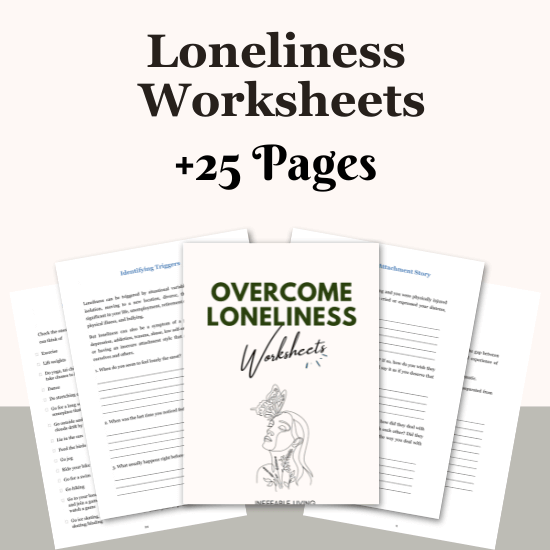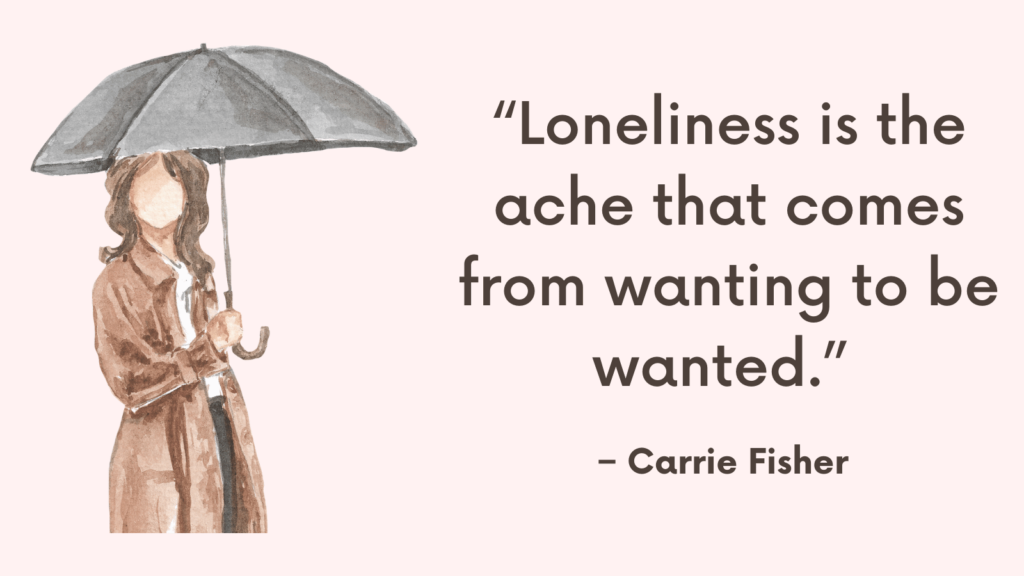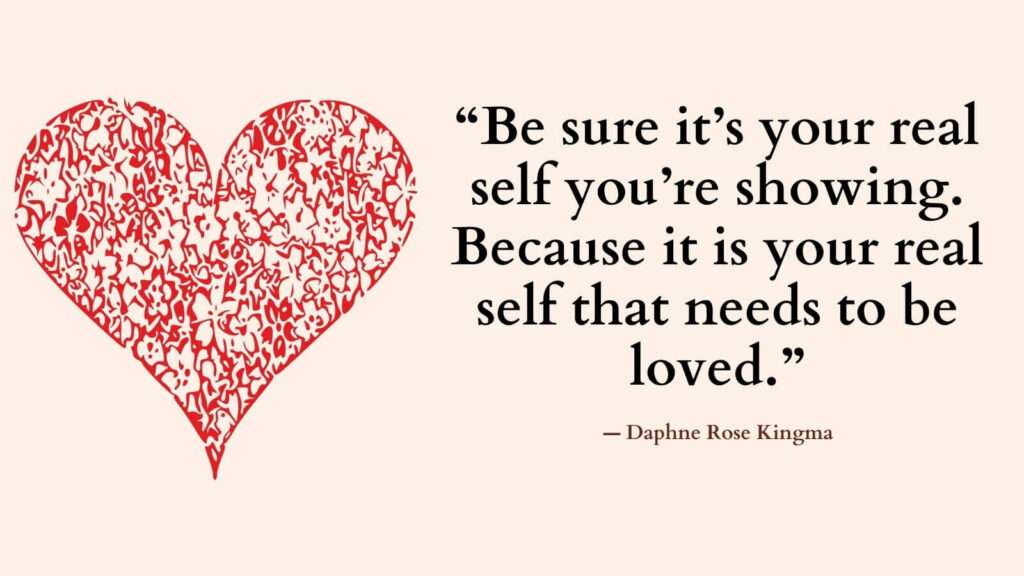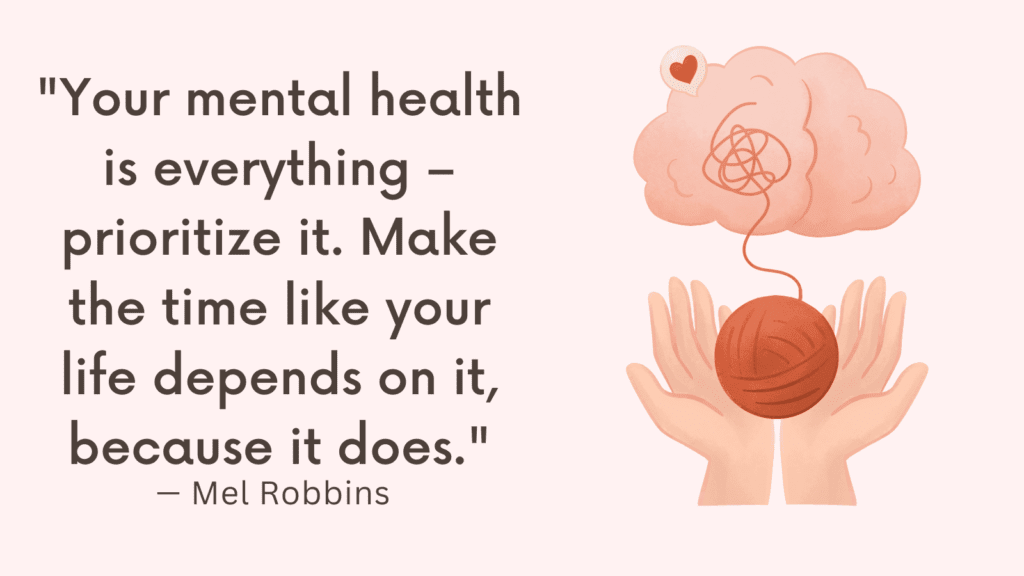Social isolation has become a significant concern. Our brains are naturally wired for social interaction, and when deprived of it, they undergo noticeable changes.
This post explores the effects of social isolation on the brain and offers practical strategies to mitigate and reverse these effects.
How Social Isolation Affects Your Brain?
1. Cognitive Decline
Researchers observed that social isolation in older adults living alone accelerated age-related cognitive decline and increased the risk of developing dementia by 27%. (source)
2. Brain Fog
One common manifestation of social isolation is brain fog.
Brain fog can encompass several symptoms, including slower information processing, trouble finding words, and mental fatigue despite a lack of physical exertion.
This condition results from the loss of nerve connections in critical areas of the brain due to isolation.
Related: Am I Lonely Quiz (+ Top 5 Tips To Overcome Loneliness)
3. Social Cognition
Social cognition refers to the skills that allow us to interpret and respond to social cues.
These skills include recognizing emotional expressions, remembering familiar faces, interpreting tones of voice, and understanding others’ perspectives (known as theory of mind).
Social isolation can erode these skills because we fall out of practice and because of actual changes in brain structure.
4. Brain Changes
A study involving structural MRI data from 32,000 people revealed that social isolation leads to brain loss in areas such as the temporal lobes, frontal lobes, and hippocampus. (source)
The hippocampus, crucial for emotional memories, is notably smaller in people who are depressed. These changes underscore the significant impact of social isolation on brain health.
Related: How to Make Friends as an Empty Nester? Top 10 Tips
How to Reverse the Damage of Social Isolation on Your Brain?
Despite the negative effects, there is hope.
The brain possesses the remarkable ability to rewire itself and strengthen loose connections, a phenomenon known as neuroplasticity.
Building up your cognitive reserve can help your brain compensate and function even with reduced brain volume.
Cognitive reserve acts like a backup power generator that kicks in when the primary system fails.
1. Re-engage with Social Activities
Join a local book club, gardening group, or any community activity that interests you.
Regular interactions and shared activities can help rebuild social skills and reduce feelings of loneliness.
Volunteering provides a sense of purpose and connection. It can be a powerful way to meet new people, engage in meaningful activities, and improve overall mental health.
Find opportunities that align with your interests, such as helping at a local animal shelter or community center.
Related: Living Alone For The First Time? Top 8 Tips to Cope
2. Foster Strong Relationships
Make a conscious effort to reconnect with family members and old friends.
Schedule regular calls, video chats, or in-person meetings to rebuild these relationships.
Support groups, whether in person or online, can also provide a sense of belonging and understanding.
Joining a group for people with similar experiences can help you share your feelings and learn from others who have faced similar challenges.
3. Engage in Physical Activity
Physical activity is known to boost brain health. Joining a group exercise class, such as yoga, pilates, or a dance class, can provide both physical and social benefits.
The combination of movement and social interaction can help combat the effects of isolation.
Engage in outdoor activities like hiking, biking, or walking in a local park.
Nature can have a calming effect on the mind, and participating in group hikes or community gardening projects can provide social interaction.
Related: 8 Tips on Overcoming Loneliness After the Death of Your Husband, Wife, or Partner
4. Stimulate Your Brain
Enroll in a class or workshop to learn something new. This could be anything from learning a new language to taking up a musical instrument.
Continuous learning helps keep the brain active and can introduce you to new social circles.
Engage in activities that challenge your brain, such as puzzles, chess, or strategy games.
These activities can help maintain cognitive function and can be enjoyed with others, either in person or online.
Related: What To Do On Thanksgiving Without Family: Top 8 Tips
5. Practice Mindfulness and Meditation
Join a meditation or mindfulness group.
These practices can reduce stress, improve emotional regulation, and enhance social connections.
Group sessions provide an opportunity to meet like-minded individuals.
Use mindfulness apps that offer guided meditations and community features.
Many apps have forums or groups where you can connect with others practicing mindfulness.
Related: How to Survive Christmas Without A Loved One?
6. Utilize Technology
The internet offers numerous opportunities to connect with others. Join online forums, social media groups, or virtual meetups that align with your interests.
These platforms can provide social interaction and support, especially if physical meetings are challenging.
Related: Best 10 Nonfiction Books About Loneliness

Conclusion
Social isolation can have profound effects on the brain, leading to cognitive decline and brain fog.
However, by leveraging neuroplasticity and building cognitive reserve, you can mitigate and even reverse these effects.
Lifelong learning, social interaction, challenging activities, and regular exercise are key strategies to keep your brain healthy and resilient.
Remember, it’s never too late to start investing in your cognitive health.



